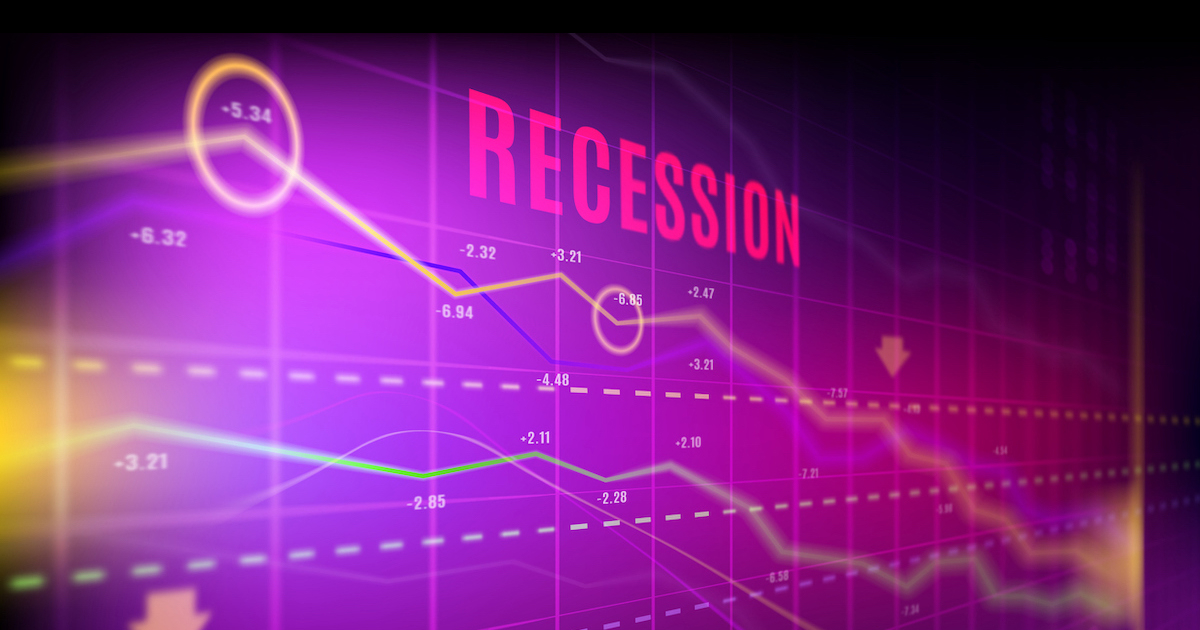Recession?
As the world navigates the complex terrain of economic recovery, the United States finds itself at the forefront of a puzzle that is drawing attention from policymakers and economists alike. The rapid pace of U.S. economic growth, juxtaposed against sluggish growth in other major economies, is raising concerns of potential global repercussions. The central question that looms: Could the fervent U.S. growth, if unchecked, lead to heightened global risks, particularly if it prompts the Federal Reserve to take more aggressive actions?
The US Growth Mirage
The U.S. economy has been a beacon of resilience in the aftermath of unprecedented disruptions triggered by the COVID-19 pandemic. The economic recovery has been robust, with indicators like job creation, GDP growth, and consumer spending rebounding at remarkable rates. While this surge signals a significant step towards normalcy, it also introduces complexities that must be addressed.
One notable aspect is the potential for inflation. The rapid pace of growth, paired with supply chain disruptions and soaring demand, has elevated inflation concerns. An overheating economy could lead to sustained higher prices, eroding purchasing power and impacting the livelihoods of consumers.
Global Implications of US Growth
The global economy operates as a tightly interwoven ecosystem. The contrast between the exuberant U.S. growth and the more subdued growth in other parts of the world raises several interconnected risks. Firstly, if the Federal Reserve opts to counterbalance inflation by raising interest rates more aggressively than anticipated, it could potentially tighten borrowing conditions not only in the U.S. but also ripple through global markets. This could exert downward pressure on other economies that are already grappling with their own challenges.
Secondly, a stronger U.S. dollar resulting from interest rate hikes could spark capital outflows from emerging markets, destabilizing their currencies and causing financial turbulence. It’s worth noting that emerging markets, often more sensitive to external shocks, could face heightened vulnerabilities in such a scenario.
Policymaker Predicaments
Central banks are currently faced with the delicate task of threading the needle between sustaining economic recovery and averting potential long-term damage. The Federal Reserve, in particular, finds itself in a pivotal role, needing to balance the twin challenges of controlling inflation and supporting economic growth.
The pathway chosen by the Federal Reserve will have reverberations throughout the global financial system. A swift and aggressive approach to interest rate hikes could mitigate inflation concerns but might also curb economic expansion. A more cautious approach, while supporting growth, could potentially fan the flames of inflation.
The Road Ahead
The interconnectedness of the global economy necessitates a collaborative and coordinated approach. Policymakers across nations need to be vigilant in communicating their strategies and actions to prevent unintended consequences that could disrupt the delicate equilibrium of international trade and finance.
For the U.S., it’s imperative to acknowledge the ripple effects of its growth trajectory and the importance of calibrated policy decisions. This involves striking a balance between nurturing a robust recovery and preventing potential global spillovers of its monetary policy actions.
Interpreting US Economic Data:
The recent barrage of economic data emanating from the United States has prompted discussions and analyses about the nation’s economic health, revealing both warning signs and potential challenges ahead. Amidst the ongoing recovery from the unprecedented disruptions caused by the COVID-19 pandemic, concerns have emerged about the possibility of an impending recession, and the potential for financial markets to deflate.
Shadows of Recession Loom
Economic indicators are raising eyebrows, hinting at vulnerabilities within the U.S. economy. Despite previous strides in recovery, elements such as slowing job growth, weaker consumer spending, and supply chain disruptions are casting shadows on the economic landscape. These signs could potentially point to an economic slowdown that might eventually lead to a recession, a term that stirs unease due to its potential to disrupt lives, industries, and markets.
Stock Market Decline and Economic Outlook
The evolving possibility of a recession poses a substantial risk to the major American financial markets. Should this recession continue to unfold, there is a credible concern that the markets could experience substantial declines of 25% or even more. The severity of the potential recession amplifies the apprehension surrounding these projected losses.
Adding to the unease, the current technical indicators and market trends suggest a vulnerability that extends beyond the typical market dynamics. The term “black swan” event, often used to describe unforeseen and exceedingly rare occurrences with profound consequences, encapsulates the magnitude of the risk. The current patterns hint at an environment where the markets are particularly susceptible to such an event, one that could prove to be highly impactful and unexpected.
In this context, one such plausible “black swan” event could be the materialization of a US recession. Given the interconnectedness of global economies and financial systems, a recession within the United States could have far-reaching repercussions, affecting not only domestic markets but also international ones. This interplay between the potential for a recession, the susceptibility of the markets to a significant shock, and the notion of a “black swan” event creates an intricate and concerning landscape for investors and financial analysts alike.

STA Research (StockTargetAdvisor.com) is a independent Investment Research company that specializes in stock forecasting and analysis with integrated AI, based on our platform stocktargetadvisor.com, EST 2007.


































